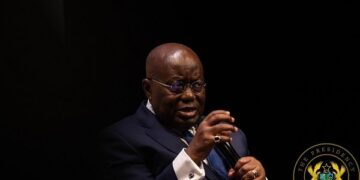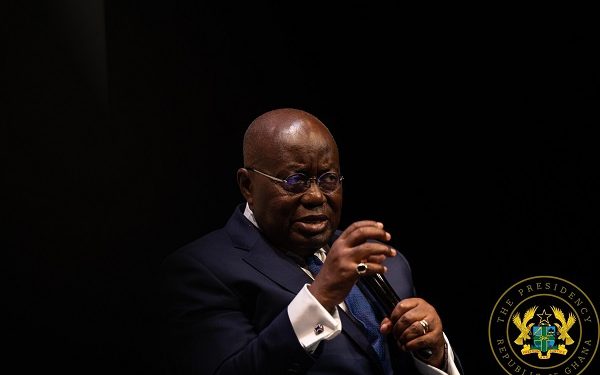President Nana Addo Dankwa Akufo-Addo has called on fellow Heads of State and the global business community to focus on unleashing the $450 billion AfCFTA-driven potential income that stands to be accrued from continental trade by 2035.
President Akufo-Addo added that a one per cent increase in Africa’s share of global trade from two per cent to three per cent could generate some seventy billion United States dollars of additional income per annum for the continent.
A key step to achieving this, according to the President, is for all in the global community to support the call for a new investment approach that prioritises mutual partnerships between the private sectors across advanced economies and the economies of Africa.
Speaking at this year’s edition of the Africa-Italy summit on Monday in Rome, Italy, President Akufo-Addo said, in line with the urgency to take the necessary steps towards resiliency as a continent, it is important to avoid “tax-dodging”, which is the illegitimate commercial transactions by multinationals, which account for sixty per cent of the US$88 billion of illicit financial flows annually from the continent and other relationships which inhibit Africa’s development.
With some eighty per cent of infrastructural projects in Africa failing at the feasibility and business planning phase, he noted that with the right reforms and interventions, Africa, according to an analysis conducted by the American management consulting firm, Mckinsey & Company, could unlock some US$550 billion of investments annually in infrastructure.
“Before 2020, Africa was attracting increasing foreign direct investment (FDI), although overall FDI inflows remained much lower than in other world regions. Between 2000 and 2019, FDI flows to Africa increased fourfold, with a compound annual growth rate of eight to five per cent (8.5%). Our biggest challenge is not a scarcity of financing, but a confluence of poor governance, speculative risk perception, and a defective environment for crowding in investors.”
He was confident that with added emphasis placed on creating a de-risked landscape that innovatively crowds in resources from private sources of capital, international financial institutions and sovereign wealth funds, governments on the continent will have to focus their efforts on delivering transformative investments like infrastructure to boost Africa’s development aspirations.
The African Development Bank says the continent’s infrastructure financing needs will be as much as $170 billion a year by 2025, with an estimated gap of around $100 billion a year.
This is essentially why, with a burgeoning population growing at a rate of 2.5% annually, “it has become even more urgent to provide reliable electricity, affordable and decent housing, improved transportation networks, and accessible health infrastructure.” he emphasised.
Touching on key efforts to engender the delivery of quality economic infrastructure for Africa’s post-COVID-19 recovery, he said, “Recent happenings within the global space, particularly the COVID-19 pandemic, the Russian invasion of Ukraine and the turmoil in the Middle East, which is threatening to engulf the rest of the world, have increased the need for policymakers on the African continent to achieve a structural transformation that yields inclusive and sustainable growth patterns over the medium to long term.”

































